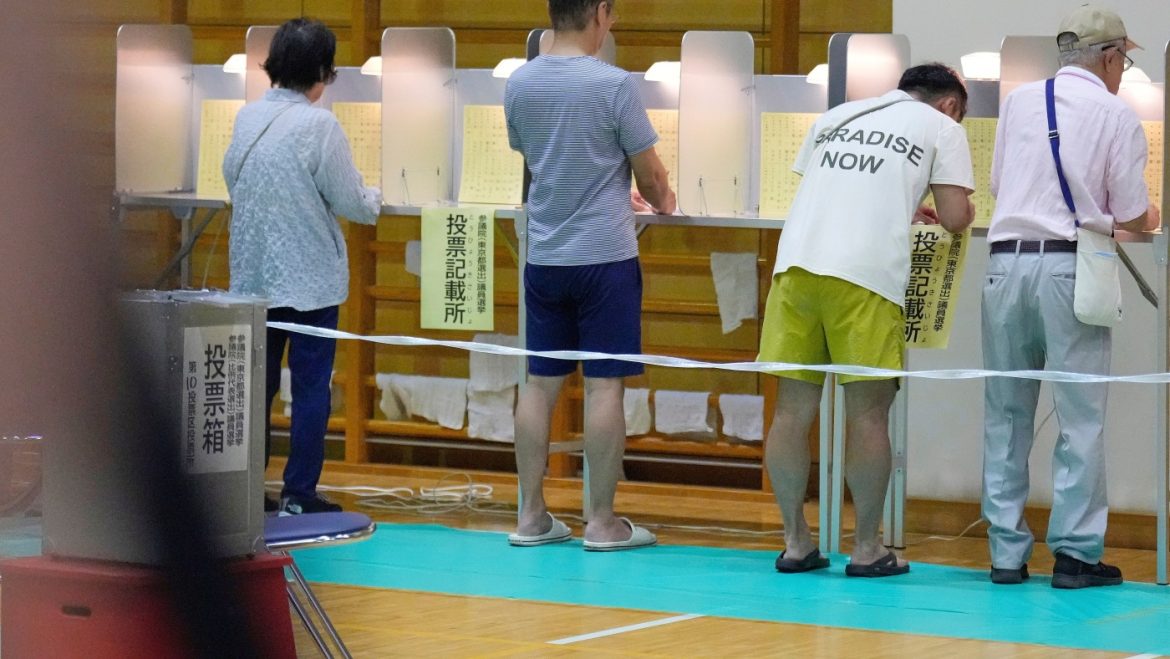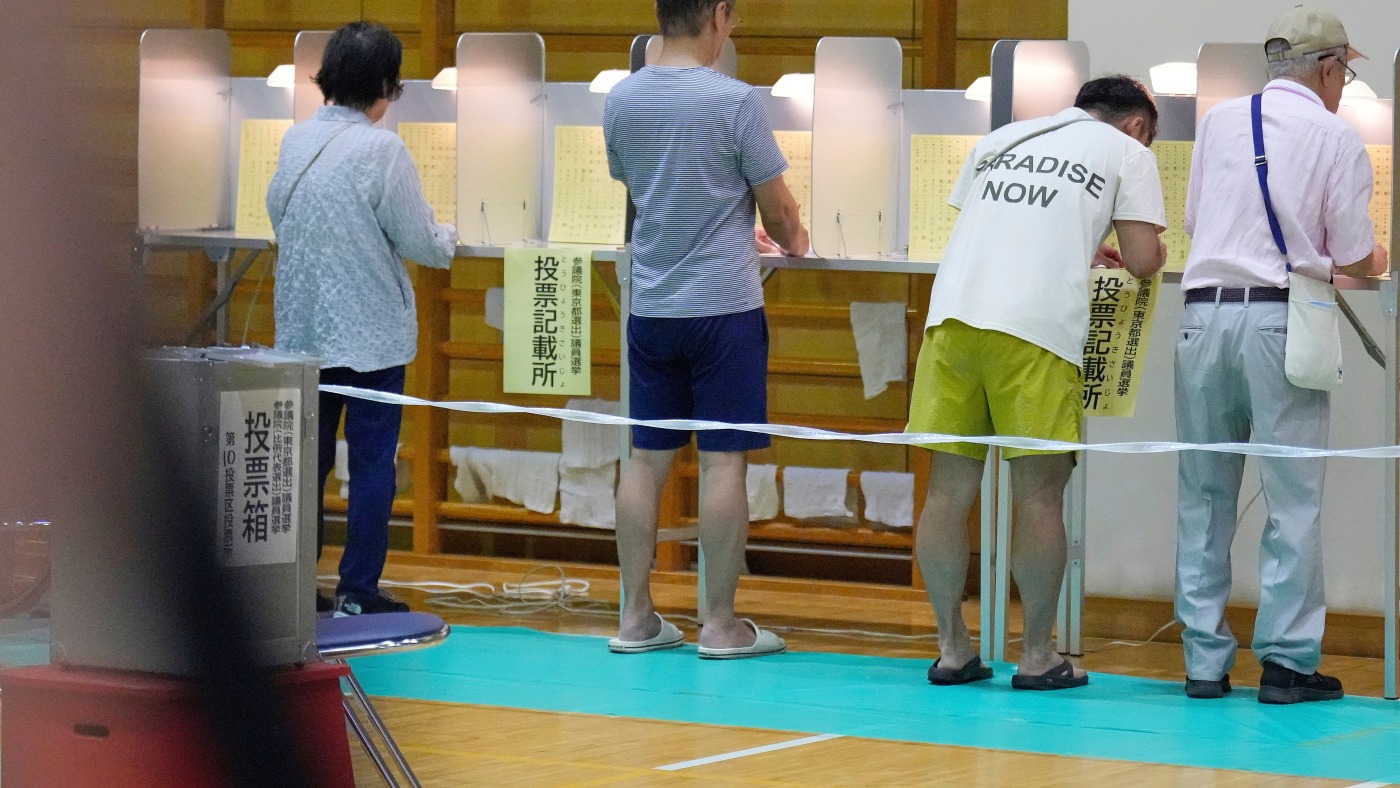The Ishiba Test: Analyzing Japan’s Upper House Election and Its Implications
A Nation Divided: Key Issues at the Forefront
Japan’s Upper House election was a microcosm of the nation’s deep-seated anxieties and aspirations. The electorate was grappling with a multitude of pressing issues, each reflecting the complex challenges facing modern Japan.
Economic Woes: The Silent Crisis
At the heart of voter dissatisfaction lay economic concerns. Rising prices, stagnant wages, and the looming crisis of the social security system created a perfect storm of economic anxiety. The cost-of-living crisis has hit households hard, with inflation outpacing wage growth, leaving many feeling financially insecure. The sustainability of Japan’s social security system, already under strain from an aging population, became a hot-button issue. Voters questioned whether the ruling coalition had the vision or the will to address these economic challenges effectively.
Immigration and National Identity: A Cultural Crossroads
The issue of immigration has become increasingly polarizing. While some advocate for a more open immigration policy to address labor shortages, others express concerns about the impact of foreign residents on Japanese culture and society. Right-wing populist parties have capitalized on these anxieties, advocating for stricter immigration controls and a more nationalist agenda. This debate is not just about policy; it’s about the very identity of Japan and its place in an increasingly globalized world.
US Tariffs and International Relations: Navigating Global Uncertainties
The specter of US tariffs and broader global trade uncertainties added another layer of complexity to the election. Japan’s economy is deeply intertwined with global markets, and voters were keenly aware of the need for a government that could navigate these choppy waters. The potential for trade disruptions with the US, Japan’s most important ally, loomed large in the minds of many. The election became a referendum on which party could best protect Japan’s economic interests in an uncertain global landscape.
Political Scandals: Eroding Public Trust
The shadow of financial scandals involving members of the ruling party cast a pall over the election. These scandals eroded public trust and fueled calls for greater accountability. Voters expressed frustration with a political class that seemed more concerned with self-preservation than with addressing the real issues facing the country. The election became a test of whether the ruling coalition could regain the trust of the electorate or if it was time for a change.
The Stakes: A Test of Ishiba’s Leadership
The Upper House election was more than just a political exercise; it was a critical test of Prime Minister Shigeru Ishiba’s leadership. The outcome would determine not only the stability of his government but also the direction of Japan’s policy-making in the years to come.
A Referendum on Ishiba’s Performance
Ishiba’s leadership was under intense scrutiny. His government’s handling of the economic crisis, the immigration debate, and the fallout from political scandals were all on the line. A significant loss in the election would not only weaken his grip on power but also potentially trigger a period of political instability. The election was a moment of truth for Ishiba, a chance to prove that his government had the vision and the competence to lead Japan through its current challenges.
The Balance of Power: Shaping the Future of Governance
The election’s outcome would reshape the balance of power within the Japanese parliament. The Liberal Democratic Party (LDP) and its coalition partner Komeito were fighting to maintain their majority, while opposition parties sought to capitalize on voter dissatisfaction. The results would determine whether the ruling coalition could continue to govern effectively or if a new political dynamic would emerge.
Scenarios and Potential Outcomes
The election results could lead to several different scenarios, each with distinct implications for Japan’s future.
Ruling Coalition Retains a Majority: Stability with Strings Attached
If the LDP and Komeito managed to secure a combined majority of seats, Ishiba would likely remain in power. However, this victory would come with strings attached. A weakened mandate would force the government to address the underlying issues driving voter dissatisfaction. The ruling coalition would need to demonstrate a renewed commitment to economic reform, social welfare, and political accountability to regain the trust of the electorate.
Ruling Coalition Loses Majority but Remains the Largest Bloc: The Art of Compromise
Even without a majority, the LDP could attempt to form a new coalition government with other parties. This scenario would involve compromises and policy adjustments to accommodate the demands of potential coalition partners. The government would need to navigate a more complex political landscape, balancing the interests of different factions to govern effectively.
Opposition Gains Control: A New Era of Policy Priorities
A significant victory for the opposition parties could lead to a change in government. This outcome would usher in a new era of policy priorities, with potential shifts in areas such as economic policy, social welfare, and foreign relations. The opposition would need to demonstrate that it has the vision and the competence to address the challenges facing Japan and deliver on its promises.
Increased Political Fragmentation: The Perils of Gridlock
The emergence of smaller parties and independent candidates could lead to a more fragmented political landscape. This scenario would make it more difficult to form stable coalitions and govern effectively. The government would face the challenge of navigating a more complex political environment, with the risk of policy paralysis and gridlock.
Beyond the Election: Implications for Japan’s Future
The outcome of the Upper House election will have far-reaching consequences for Japan’s future, impacting various aspects of society and governance.
Economic Policy: Charting a New Course
Depending on the election results, Japan could see shifts in economic policy. The government may need to adjust its fiscal stimulus measures to address the cost-of-living crisis and stimulate economic growth. Reforms of the social security system could also be on the table, as the government seeks to ensure its sustainability in the face of an aging population. The approach to trade relations and international economic cooperation could also be affected, as Japan navigates the complexities of the global economy.
Social Policy: Balancing Tradition and Progress
The election outcome could influence policies related to immigration, social welfare, and gender equality. A more conservative government might prioritize traditional values and stricter immigration controls, while a more progressive government could focus on expanding social safety nets and promoting diversity. The government will need to strike a delicate balance between respecting Japan’s cultural heritage and adapting to the realities of a changing world.
Foreign Policy: Navigating a Complex World
Japan’s foreign policy could also be affected by the election results. The government’s approach to defense spending, relations with the United States, and engagement with regional powers like China and South Korea will be shaped by the political landscape. The election outcome could determine whether Japan adopts a more assertive or a more conciliatory approach to its international relations.
Political Stability: The Foundation of Governance
The election’s impact on political stability will be a key factor shaping Japan’s trajectory in the coming years. A decisive outcome could provide a foundation for effective governance, while a fractured political landscape could lead to gridlock and policy paralysis. The government will need to demonstrate its ability to govern effectively and address the challenges facing Japan to maintain political stability.
The Rising Tide of Populism and Nationalism
One of the undercurrents in this election was the rise of right-wing populist parties. These parties capitalized on anxieties about immigration and national identity, tapping into a growing sense of discontent with the political establishment. Their growing influence signals a potential shift in Japan’s political landscape, with implications for social cohesion and international relations.
The Populist Surge: A Challenge to the Status Quo
The rise of populist parties reflects a broader global trend of disillusionment with traditional political institutions. These parties offer a simple narrative of national renewal, promising to protect Japan’s cultural identity and economic interests from the perceived threats of globalization and immigration. Their success in the election could signal a broader shift in Japanese politics, with implications for the country’s future direction.
Nationalism and Its Implications
The rise of nationalism could lead to stricter immigration policies, increased protectionism, and a more assertive foreign policy. These policies could have significant implications for Japan’s social cohesion and international relations. The government will need to navigate these complex issues carefully, balancing the need to address voter concerns with the broader interests of the nation.
Echoes of the Past, Visions of the Future
The election results could be interpreted as a reflection of Japan’s ongoing struggle to reconcile its past with its future aspirations. The country faces a complex set of challenges, including an aging population, a declining birth rate, and increasing economic competition from other nations. The choices made by voters in this election will shape how Japan confronts these challenges and defines its role in the 21st century.
The Burden of History
Japan’s history weighs heavily on its present. The country’s past experiences with economic crises, political upheaval, and social change shape its current challenges and aspirations. The election results will determine whether Japan can learn from its past and chart a new course for the future.
The Path Forward
The election was a crossroads moment for Japan. The outcome will determine the country’s direction on critical issues ranging from economic policy to social welfare and international relations. The choices made by voters will shape Japan’s future, determining whether it can overcome its current challenges and emerge stronger and more resilient.
A Crossroads Moment
The Upper House election represented more than just a routine political exercise; it was a crossroads moment for Japan. The outcome will determine the country’s direction on critical issues ranging from economic policy to social welfare and international relations. Prime Minister Ishiba faced a stern test of his leadership, and the results of the election hold profound implications for Japan’s future stability and prosperity. The voices of the Japanese people have spoken, and their verdict will shape the nation’s path forward. The choices made in this election will echo through the decades, determining Japan’s role in the 21st century and its ability to navigate the challenges and opportunities of a rapidly changing world.


